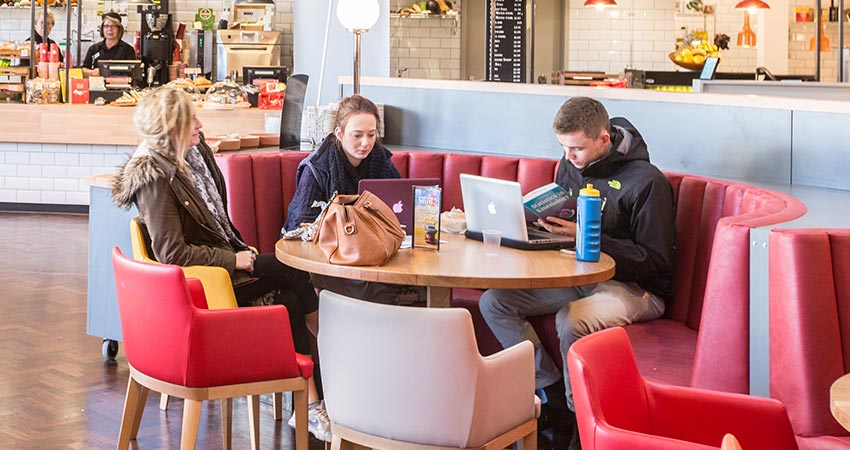PGCE Primary 3-7 (with QTS)
PGCE
Start dates: September 2024
Full time: Up to 42 weeks
Location: Harcourt Hill
Department(s): School of Education, Humanities and Languages
Overview
Great teachers make a difference to the lives of every child they teach everyday. Crucially, they have the knowledge, skills and understanding to teach excellent lessons - that have a positive impact on all pupils. The 3-7 Primary PGCE has been designed to enable you to become a primary teacher with an early years specialism.
By developing your knowledge and understanding of research, with a strong focus on what makes a difference in the classroom, you will develop a strong theoretical framework to your practice. Your practice, refined both on-campus and on-placement, will draw directly on this research.
When you train to teach at Oxford Brookes, you will join a course whose graduates inspire thousands of children and lead in hundreds of schools across Oxfordshire and beyond. School leaders know our graduates are well-prepared to meet the high standards expected of them in our schools, with a broad range of on-campus and on-placement teaching and learning preparing them to make a difference in the lives of every child they teach, every day.

Why Oxford Brookes University?
-
Become a skilled teacher
You’ll study a curriculum underpinned by the Initial Teacher Training and Early Career Framework (ITTECF)
-
On-campus and on-placement learning
Put theory into practice with three placements across Key Stages 1 and 2, early reading and inclusive practice
-
Extensive network of partner schools
Complete on-placement learning in a range of school settings in our network of partner schools
-
Excellence for all
A programme designed around the core components you need to meet to gain Qualified Teacher Status (QTS)
Course details
Study modules
Through your learning we’ll:
- train you to hold high expectations for every child you teach by including social justice throughout the course
- provide you with the knowledge, skills and understanding required to be recommended for qualified teacher status
- train and support our mentors - so that they know how to help you make progress
- assess and support you to become a teacher that makes a positive difference.
Please note: As our courses are reviewed regularly as part of our quality assurance framework, the modules you can choose from may vary from those shown here. The structure of the course may also mean some modules are not available to you.
Research
The School of Education, Humanities and Languages is a thriving centre for educational research and teacher professional development. Students on master's level programmes therefore join a large research community comprising researchers at all levels of higher education study.
We hold two major research conferences each year - the School of Education Research Conference and the EdD Colloquium. All students are invited to attend our annual Research
Seminar Series (which attracts both internal and external speakers). We also organise a number of conferences, lectures, seminars and debates, some of which have an international reach.
The School’s six research groups exist to encourage engagement in research, publication, conference presentations, seminars and workshops:
- Inclusion and Wellbeing
- Policy, Partnership and Leadership
- STEAM pedagogy and learning
- Humanistic Perspectives on Education
- Early Years
- Applied Linguistics
View all staff profiles for School of Education, Humanities and Languages

Careers
By completing placements in a variety of local primary schools, you will build excellent relationships with head teachers helping your future employment prospects. Many of our graduates go on to gain employment in the schools where they have previously been placed.
Professional Accreditation
This course is accredited by the Teaching Regulation Agency to grant Qualified Teacher Status (QTS) in the UK. You will be provisionally registered with the Teaching Regulation Agency at the beginning of your course. Students who successfully complete the course will be recommended for QTS.
Please be aware that following the UK's departure from the European Union, QTS awarded by UK higher education institutions is not currently recognised in the EU.
Student profiles
Related courses
Entry requirements
Specific entry requirements
GCSE: GCSEs or equivalents: achieve a standard of grade 4 or higher in English, Mathematics and Science (Science with Chemistry, Science with Physics, Science with Biology).
- A recognised UK degree, or degree equivalent, normally at second class honours.
- Additional DBS and Health teaching checks are completed prior to your enrolment. Once you have accepted an offer from Oxford Brookes you will notified to complete your Health and DBS checks preceding your enrolment; you will receive your DBS notification by email in May.
Please also see the University's general entry requirements.
Screening
All applicants will be screened for fitness to practise and a Disclosure and Barring Service (DBS) check will be made.
Selection process
A successful application leads to a teaching interview invite from Oxford Brookes University. A successful interview will secure your place on your chosen PGCE Primary course.
Your teaching interview will be remote (online).
You’ll receive an interview date invite. That contains interview advice/guidance and example questions. Please confirm your interview date as soon as possible.
Then your academic interviewer will contact you with a 30 min 1-1 Zoom interview invite between 10.00 - 17.00 on your interview day. Please also accept this invite.
You will be given a task to complete during the interview. You'll also need your photographic ID to hand to show the academic interviewer.
At 09:00 on your interview day you will receive a recorded introductory talk from the course leader. Please watch this video.
Enjoy your interview and ask questions, it’s your chance to find out about us.
English language requirements
Please see the University's standard English language requirements.
Pathways courses for international and EU students
We offer a range of courses to help you meet the entry requirements for your postgraduate course and also familiarise you with university life in the UK.
Take a Pre-Master's course to develop your subject knowledge, study skills and academic language level in preparation for your master's course.
If you need to improve your English language, we offer pre-sessional English language courses to help you meet the English language requirements of your chosen master’s course.
English requirements for visas
If you need a student visa to enter the UK you will need to meet the UK Visas and Immigration minimum language requirements as well as the University's requirements. Find out more about English language requirements.
Terms and Conditions of Enrolment
When you accept our offer, you agree to the Terms and Conditions of Enrolment. You should therefore read those conditions before accepting the offer.
International qualifications and equivalences
How to apply
Application process
Apply for this course through DfE Apply.
You will receive a communication from us inviting you to an interview day if your application is successful. We are currently running virtual online interviews at the moment.
A successful interview will lead to you receiving an offer for a place on this course.
When you apply for the course, we recommend that you have school experience. Applicants should have insights into the primary classroom with school experience. Though this is not compulsory for applicants.
Tuition fees
Questions about fees?
Contact Student Finance on:
Tuition fees
Fees quoted are for the first year only. If you are studying a course that lasts longer than one year, your fees will increase each year.
The following factors will be taken into account by the University when it is setting the annual fees: inflationary measures such as the retail price indices, projected increases in University costs, changes in the level of funding received from Government sources, admissions statistics and access considerations including the availability of student support.
How and when to pay
Tuition fee instalments for the semester are due by the Monday of week 1 of each semester. Students are not liable for full fees for that semester if they leave before week 4. If the leaving date is after week 4, full fees for the semester are payable.
- For information on payment methods please see our Make a Payment page.
- For information about refunds please visit our Refund policy page
Additional costs
Please be aware that some courses will involve some additional costs that are not covered by your fees. Specific additional costs for this course are detailed below.
Compulsory costs
| Additional costs | Amount (£) |
|---|---|
| Disclosure Barring Service (DBS) initial check | £54 |
Optional costs
| Additional costs | Amount (£) |
|---|---|
| Travel and associated costs if relevant when undertaking work placements. | £30-700 per year |
| 3-day Outdoor Education Residential in South Wales (inc. food, accommodation, travel, equipment and tuition) | £180 |
| Disclosure Barring Service (DBS) top-up check (to keep up to date) | £13 |
It’s your responsibility to cover print / binding costs where coursework submission is required. Please note that a lot of the coursework is now submitted online. |
From £30 |
| You may choose to purchase books to support your studies. Many books on our reading lists are available via the Library, or can be purchased secondhand. | £20-60 per book |
Accommodation fees in Brookes Letting (most do not include bills) |
£94-265 per week |
Accommodation fees in university halls (bills included, excluding laundry costs) |
£122-180 per week |
Graduation costs include tickets, gowning and photography. Gowns are not compulsory but typically students do hire robes, starting at £41. |
Typically £0-200 |
Students are responsible for their own travel to and from university for classes. BrookesBus travel is subsidised for full-time undergraduate students that are on a course with a fee of £9,250 or more, or living in an Oxford Brookes hall of residence. There is an administration fee for the production of a BrookesKey. |
From £10 |
Funding your studies
Financial support and scholarships
Featured funding opportunities available for this course.
Oxford Brookes alumni may be eligible for a 10% fees discount on postgraduate study.
All financial support and scholarships
Programme changes:
On rare occasions we may need to make changes to our course programmes after they have been
published on the website. For more information, please visit our
changes to programmes page.


